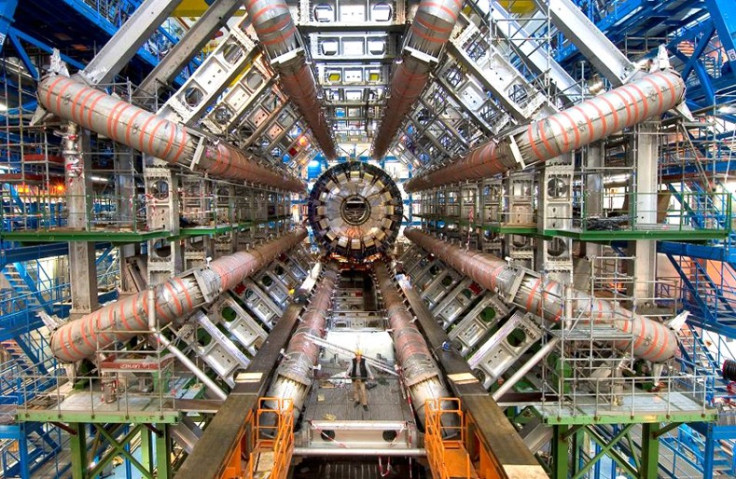What is the 'God Particle?' Higgs boson Announcement Expected at CERN

Scientists at the CERN particle physics laboratory outside Geneva are expected to announce "significant progress" in their search for the elusive Higgs boson, also known as the "God particle".
Physicists have spent decades searching for this elementary particle, aided by the £6.2 billion Large Hadron Collider built to recreate conditions a fraction of a second after the Big Bang.
What exactly is the Higgs boson? And why have rumours of its existence been described as potentially the most exiting scientific discovery in living memory?
First things first, what is the Higgs boson?
The Higgs boson is notoriously difficult to describe to anyone who does not dabble in physics. It is basically a theoretical subatomic particle that is believed to be a fundamental building block of the universe. If its existence is proven, it would help to explain how all other particles in the universe obtain mass, which is part of the Standard Model theory of the universe, the most widely accepted view.
According to this theory, as the universe cooled moments after the Big Bang, an invisible force known as the Higgs field formed together with the Higgs boson, giving mass to all other fundamental particles.
When particles pass through the Higgs field, they are slowed down as if wading through water. If particles did not obtain this mass - the resistance of an object to changes in its velocity - they would race through the universe at the speed of light.
How have scientists been looking for the Higgs boson?
To find the Higgs boson, scientists must create the actual particle. This is where the LHC comes in, the most powerful particle accelerator ever built. The LHC works by slamming two beams of protons together at almost the speed of light to recreate conditions similar to the Big Bang, in order to create other particles.
How will scientists know when they have found it?
If the Higgs boson is produced among the billions of collisions that have taken place in the LHC, it will be unstable and quickly decay into more stable particles of a lower mass.
Signs of the Higgs boson decaying into other particles are actually how the scientists will detect its existence, rather than seeing it directly. If the two independent teams are able to show a spike in the graphs, this will be the first proof of its existence.
However, this would not be announced as a discovery of the Higgs boson. More data and research will be needed to prove that this spike had less than a one-in-a-million chance of being a statistical fluke.
What if they announce they haven't seen it?
Interestingly, physicists will actually be disappointed if the Higgs boson is found in exactly the form in which the theory predicts.
As the LHC was built with the aim of expanding our knowledge of the universe, if the Higgs boson turns out to be exactly where it was predicted to be, it would more or less draw a line under the whole theory. If future studies confirm that the Higgs boson does not exist, then the whole theory of the Standard Model will have to be rewritten. which would completely alter our current understanding of the universe.
© Copyright IBTimes 2025. All rights reserved.






















